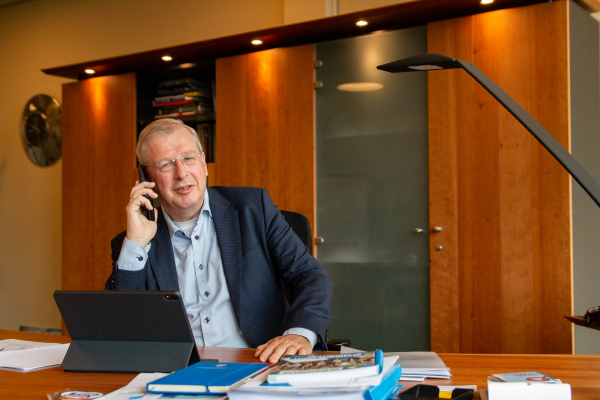The European Committee of the Regions adopts Tjisse Stelpstra's opinion on the New Circular Economy Action Plan

On October 14, the European Committee of the Regions adopted the opinion on "The New Circular Action Plan" by a wide margin. The opinion was prepared under the direction of ECR Member Tjisse Stelpstra who also serves as regional minister for the Drenthe province in the Netherlands. The opinion calls for increased sustainability, improved waste management and a more responsible culture of consumerism.
"The text shows in a positive way the important role local and regional authorities play in Europe`s transition to a circular economy. A lot of good practices have been shown to work on the local and regional level. By adopting this opinion, we, as regions and cities, are not only asking for help, such as in funding this transition. We are also offering help, by creating a more sustainable society on the local level" – said Me Stelpstra.
"The New Circular Economy Action Plan" combines astute policy recommendations with important paradigm shifts. Crucially, Mr Stelpstra appeals to European citizens to work towards a society in which there is zero waste, where resources are recycled and reused domestically. By doing this, European consumers would become more environmentally conscious and the EU would also be successful in accelerating the green transition.
Speaking on the role of individual consumers, Mr Stelpstra said: "Circularity is not just about the economy, industry and the need to produce responsibly. It is about the way we live and consume, from the clothes we buy, to how our houses are built, the amount of waste we produce and the quantity of water we use."
The CoR opinion is the answer of European local and regional authorities to making Europe more sustainable and independent in terms of supply chains. Currently only 12% of the demand for raw materials is met by recycled materials in Europe.
The necessity of fostering sustainable and independent supply chains is underlined by the current COVID-19 pandemic which (in addition to the green transition) was one of the central themes in this October's plenary session.
"Covid-19 has made the necessity of sustainable supply chains even more apparent, it has shown how dependent we are on resources from foreign countries. The crisis has shown us that we must reduce our dependency and work toward resource independence in Europe."

